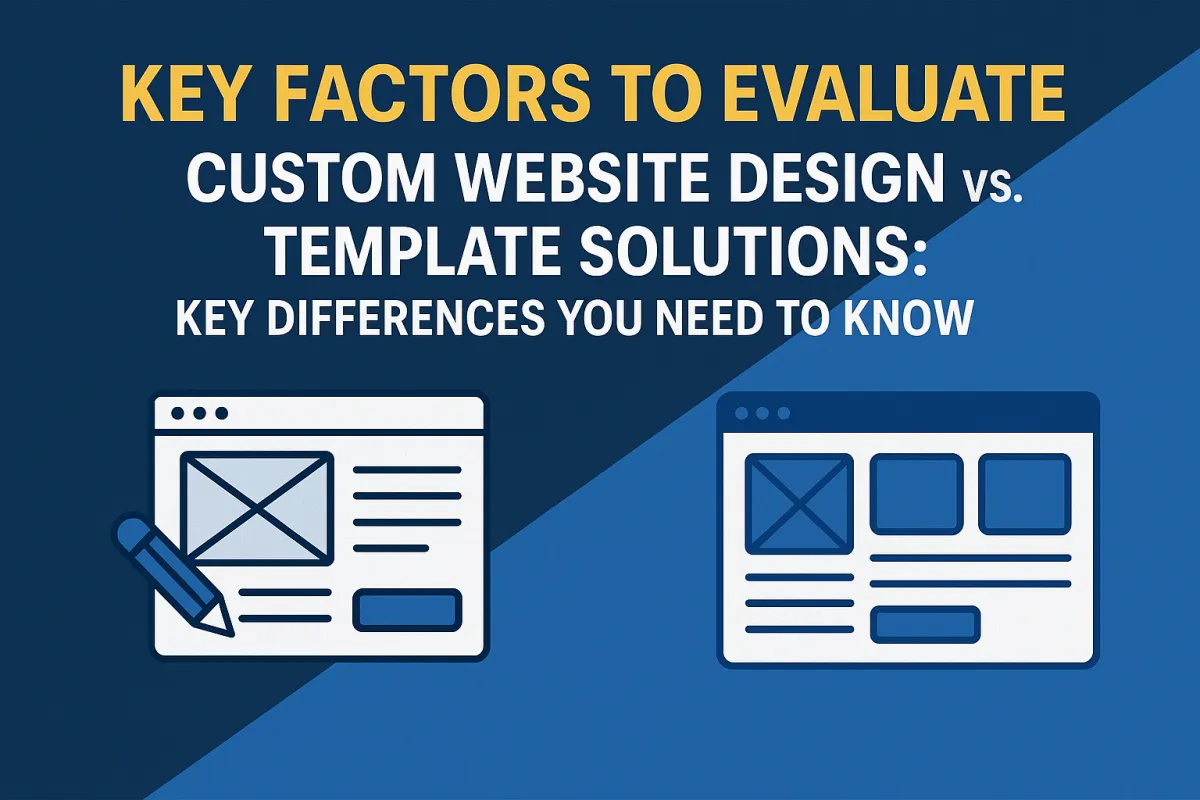Page not found

Oops! Looks like the URL took a wrong turn.
What we do.
We connect 100,000+ qualified prospects looking for financial advice, lending, protection, debt help and claims to advisors and brokers every year.

What We Do
Your proven customer acquisition system that increases conversion rates at every step of the customer journey so you can enjoy record breaking sales.
Effective Lead Generation
Strategically focused on high-intent leads generation tactics from Google, Bing, & YouTube.
Database Reactivation
Turn your old data into fresh appointments and sales, utilising our sales android that never rests.
Appointment Setting
Transform your contact rate and campaign profitability with our appointment setting sales android.

Get a good impression your brand on them.
We don't launch rockets. We just generate leads from Google, Bing and YouTube, connecting them with your team in real time. And you know what, we're bloody good at it.
Create your amazing feature.
Add your ideas here.
Give more your amazing feature or ides.
Costumer review.
See why customers love GHL Elite.

"If you're looking for an all-in-one app to help you increase sales and save time on follow-ups, I would highly recommend NexLevel CRM."
– Rachel Johnson


"Our team has been using NexLevel for a few months and we are very happy with the results. We've closed more deals than ever before and our sales team loves it."
– Mike Nord


"You never know what you're missing until you try NexLevel. We've been using it for 9 months and it has helped us double our pipeline and close more deals."
– Heather Mathewson


"Since using NexLevel over a year ago, I’ve generated $300k+ in new revenue and saved more than 20 hours per week on administrative tasks like reminders and reschedules."
– Ranjana Muthaliar

Blog
Your proven customer acquisition system that increases conversion rates at every step of the customer journey so you can enjoy record breaking sales.

Custom Website Design and Template Solutions: What to Know
Custom Website Design and Template Solutions: What to Know
In the competitive digital marketplace, businesses must decide on a website development strategy that aligns with their objectives, technical skills, and budget. Custom website designs offer unique interfaces and tailored functionality developed from scratch, while template-based solutions provide ease of deployment and lower initial costs. Both approaches impact visibility, user experience, and return on investment. Understanding the nuances of each can help local business owners make informed decisions about scaling their online presence. The following article examines core concepts, differences, financial commitments, technical distinctions, and future adaptability between custom and template solutions.
Key Takeaways
Custom website designs offer unique brand representation and tailored functionality but generally require a higher initial investment.
Template-based solutions provide quicker deployment and lower upfront costs, although customization may be limited.
Technical factors such as SEO, security, and maintenance vary significantly between the two approaches.
Future growth and integration capabilities should be considered when choosing between custom and template-based websites.
Understanding the Core Concepts of Custom and Template Web Approaches
Defining Custom Website Design From the Ground Up
Custom website design involves developing a site from scratch, using unique code and custom graphical elements. This process ensures that the website's design, structure, and functionality are tailored specifically to the business’s needs. Custom sites often include integrated content management systems and intuitive navigation curated to match the target audience. The dedication of expert web developers often results in a site that reflects a company’s brand identity and goals with a high degree of originality.
Explaining Template-Based Website Solutions
Template-based websites rely on pre-designed layouts and themes, which can be easily customised using website builders. They are built upon standardized designs that ensure quick deployment and ease of use, even for business owners with limited technical background. These platforms offer a cost-effective choice that reduces the learning curve and speeds up the launch of an online presence. They also integrate various modules, such as ecommerce and newsletter sign-ups, with consistent typography and streamlined design elements.
The Fundamental Divergence Between These Web Creation Methods
The primary difference between the two approaches lies in the level of originality and customisation. Custom website designs are built uniquely from the ground up, offering full control over every detail. In contrast, template-based solutions are inherently limited by the pre-existing structure and predetermined layouts. This divergence significantly impacts scalability and long-term flexibility as businesses grow. Custom sites can evolve with bespoke functionality, while templates are often subject to the constraints of the underlying software.
Identifying Key Characteristics of Custom Built Websites
Custom websites provide complete control over design elements, user interface, and backend functionality. They are developed using advanced programming languages and can incorporate sophisticated features like advanced search engine optimisation (SEO) and tailored analytics. Moreover, they support an integrated CRM system and are optimised for future scalability and evolving market trends. This approach attracts business owners who emphasise brand uniqueness and wish to enhance online visibility through seamless, efficient design.
Recognising Typical Features of Pre-Designed Templates
Pre-designed templates offer out-of-the-box solutions with ready-made layouts, colour schemes, and font choices. These templates are ideal for businesses looking for immediate online presence without extensive investment in time or software development. They provide a range of features from basic content management to ecommerce integration, ensuring an efficient return on investment. However, while these templates are accessible and user-friendly, they may not always capture the individuality required for advanced branding strategies.
What Are the Main Differences Between Custom Website Design and Template Based Solutions in Practice
Comparing Design Uniqueness and Brand Representation
Custom website design enables businesses to express their brand identity through unique and tailored aesthetics. Unlike template-based solutions, where many websites may appear similar, custom sites reflect distinctive styles and feature layouts that mirror a company’s ethos. With custom designs, typography, graphics, and overall interface are developed uniquely for the business, which improves digital credibility and creates a memorable online presence.
Evaluating Functionality Scope and Feature Customisation
Custom solutions are engineered to integrate complex functionalities and unique features that serve specific business processes. They allow for seamless integration of advanced analytics, CRM systems, and custom payment gateways. In contrast, template-based websites often have limitations inherent to their pre-built modules. Although many template platforms offer plugins and add-ons, these may not fully meet niche requirements, potentially impacting online shopping experiences and navigation ease.
Assessing Scalability and Future Development Potential
Scalability is a major consideration when choosing between these approaches. Custom websites offer extensive room for future expansion and can be designed with the flexibility to incorporate new technologies, such as mobile app integration or advanced SEO services. Template-based websites, while cost-effective initially, may face challenges when upgrading or customising features to match changing market trends and business needs over time.
Contrasting User Experience (UX) and Interface Design Capabilities
A tailored UX is at the core of custom website solutions, as these sites are developed with specific user behaviour and preferences in mind. Custom sites can be optimised for usability and accessibility, ensuring that the interface is intuitive and engaging. Template-based designs, on the other hand, provide a standardized user experience which may not always align with individual business objectives. The difference in interface design can have a marked impact on customer engagement and conversion rates.
Examining Originality in Custom Designs Versus Template Structures
Originality equates to a stronger brand presence and a more impressive visual impact online. Custom designs enable businesses to innovate and differentiate themselves, whereas templates frequently result in similar visual structures across different websites. A unique design can drive higher user attention and foster a sense of confidence in the brand. Although templates are dependable, they often sacrifice uniqueness for the sake of ease and speed.
Financial and Time Commitments for Custom Versus Template Websites
Analysing the Initial Investment for Custom Web Development
Custom websites generally demand a higher initial budget due to the research, design, and development time required. This investment covers in-depth planning, coding, bespoke design elements, and thorough user testing, ensuring that the final product meets specific business needs. Consequently, businesses seeking a fully tailored experience should be prepared for a considerable upfront cost that reflects the enhanced quality and uniqueness of the site.
Reviewing Upfront and Ongoing Costs for Template Solutions
Template websites, conversely, feature lower upfront costs since they utilise pre-designed elements and modules. They eliminate the need for extensive development time, resulting in immediate deployment and cost savings. However, businesses should note that while the initial investment is lower, there may be recurring fees for premium themes, plugins, and occasional technical support to maintain functionality and security.
Project Duration Expectations for Bespoke Website Builds
Custom website development projects typically require a lengthier timeframe. The iterative process of designing, coding, reviewing, and refining ensures that the site is perfectly aligned with business objectives but may extend the time to launch. Conversely, template-based websites can be deployed within days or weeks, offering a rapid solution for businesses that need to establish an online presence quickly.
Speed of Deployment With Template-Based Platforms
One distinct advantage of template solutions is their speed of deployment. These platforms provide quick setup and user-friendly interfaces that allow businesses to achieve an operational website with minimal delay. This ease of implementation makes templates highly attractive for small business owners and entrepreneurs who require immediate online visibility while managing process efficiency.
Long-Term Value Considerations for Each Website Option
While custom websites entail a higher initial cost, their long-term benefits include enhanced adaptability, scalability, and integration capabilities with future business systems. They can evolve with growing demands and offer a higher return on investment through improved user engagement and conversion metrics. Template sites, though cost-effective and fast, may eventually necessitate major overhauls to keep pace with advanced digital marketing trends and evolving user expectations.
Technical Distinctions: SEO, Security, and Maintenance
Search Engine Optimisation Advantages in Custom Web Design Solutions
Custom website designs can be optimised with highly specific SEO strategies tailored to a business’s unique content and structure. Web developers can implement clean code, efficient sitemaps, and individual metadata that boost search engine visibility. With adaptable URL structures and a custom content management system, these sites often achieve higher rankings on search engine results pages.
SEO Capabilities and Limitations of Website Templates
Template-based solutions usually offer standard SEO features that are sufficient for many small businesses; however, they may lack the flexibility needed for advanced optimisation. While integrations with popular SEO services are available, the rigidity of templates can limit the scope of customisations. This can affect the ability to fully leverage analytics and tailored keyword strategies, potentially impacting organic search performance over time.
Security Aspects of Custom Coded Websites
Custom websites are built with security in mind, utilising bespoke coding practices that reduce vulnerability to common hacking techniques. Tailored security measures, including encryption, firewalls, and regular code audits, help safeguard sensitive data and maintain the site’s integrity. This level of detail in security configuration is essential for businesses that require high assurance for transactions and online shopping.
Security Considerations for Template Utilisation
By contrast, template-based websites might inherit security flaws from the underlying theme or third-party plugins. Although established platforms typically update themes regularly, users must remain vigilant with patch installations and vulnerability monitoring. The reliance on shared code increases risks, but security plugins and professional maintenance can help mitigate potential threats within template systems.
Ongoing Maintenance Requirements for Custom and Template Sites
Maintenance is crucial for sustaining website functionality and security. Custom websites often require periodic technical updates, bug fixes, and performance optimisations tailored to the specific codebase, which may result in higher long-term maintenance costs. Template sites, with their standardized components, are easier to update through built-in management systems; however, the reliance on multiple plugins can sometimes lead to compatibility issues that necessitate professional reviews.
Choosing the Appropriate Path: Custom Design or Template Solution
Aligning Website Choice With Specific Business Objectives
The choice between custom and template solutions should align with the overall business strategy and brand vision. Businesses that prioritise a distinctive online presence and plan for substantial long-term growth typically benefit from custom website designs. These tailored solutions support specific business objectives such as enhanced analytics, marketing integration, and superior user interface customization that drive targeted audience engagement.
When a Custom Website Build Is the Preferable Option
Custom website development is ideal for businesses with complex requirements that demand unique functionality and integration with proprietary systems. For companies that require a high level of visual originality, integrated CRM systems, advanced SEO optimisation, and seamless navigation, a custom approach provides the required flexibility and technical depth. This method ensures that as the business scales, the website adapts without compromising on quality or user experience.
Situations Where a Template Website Meets Requirements
Templates are a practical option for businesses that need to launch quickly with controlled costs and minimal technical involvement. For small or start-up companies, a template solution provides a reliable online presence with basic yet effective functionality. These solutions suit operations that do not require extensive integration or unique customisations, making them cost-effective while still ensuring an organised layout and consistent branding.
Factoring in Technical Expertise and Resource Availability
The availability of technical expertise and financial resources strongly affects the decision-making process. Custom websites require access to skilled developers and designers, while template-based platforms allow business owners to maintain sites with minimal technical knowledge. Resource-constrained businesses might favour templates to minimise upfront costs and allow easier management without needing extensive technical support.
Considering the Desired Level of Control and Ownership
Ultimately, the level of control over website functionality, aesthetics, and future innovation is paramount. Custom website designs offer complete control and ownership over the code and structure. In contrast, template solutions may limit the degree of customisation and are sometimes dependent on external providers for updates and security. Therefore, businesses must weigh the benefits of immediate functionality against the long-term potential for innovation and expansion.
Future Proofing and Adaptability: Custom vs Template Websites
Modifying and Expanding Custom Websites Over Time
Custom websites are designed with flexibility in mind, allowing businesses to modify and expand functionalities as needed. Their bespoke codebase supports the integration of new features and advanced functionalities, which can include mobile app interfaces, dynamic landing pages, and enhanced analytic tools. This makes them highly adaptable to future technological shifts and evolving consumer behaviour, ensuring that the site can remain competitive over years of growth.
Updating and Customising Template-Based Websites
While templates are more rigid, many modern website builders have improved their customisation capabilities. Regular updates and an extensive plugin ecosystem allow template-based sites to incorporate new features with relative ease. However, these modifications are often limited by the constraints of the original layout and design. Business owners using templates must navigate compatibility issues during upgrades, which may occasionally affect website performance or visual consistency.
Integration Capabilities With Other Business Systems
A significant advantage of custom websites is the ease of integrating with proprietary business systems such as user databases, inventory management, and email marketing automation. Custom-built sites can be engineered with application programming interfaces (APIs) tailored to the specific needs of the organisation. Template solutions offer integration through standard plugins, yet this may not provide the same level of sophistication or seamless connectivity required for complex operations.
The Role of Content Management Systems in Each Approach
Content management systems (CMS) play a vital role in managing website content, and both custom and template solutions benefit differently from CMS integration. Custom websites allow for bespoke CMS configurations which can be optimised for specific workflows, advanced analytics, and unique content strategies. Templates, on the other hand, leverage widely used CMS platforms that offer ease of use and robust community support, though they may sacrifice certain custom functionalities.
Preparing for Future Technological Shifts With Your Chosen Solution
As technology and user expectations evolve, the adaptability of a chosen website solution becomes paramount. Custom websites are generally more future-proof since they are designed to accommodate new technologies and design trends; they can be upgraded and scaled as needed. Template-based solutions, while initially cost-effective and efficient, may eventually require a redevelopment if the underlying platform fails to keep pace with emerging digital innovations.
Final Thoughts
In conclusion, the decision between custom website design and template-based solutions rests on a balance of cost, control, functionality, and future growth potential. Custom websites provide a unique, scalable, and highly integrated platform suited for businesses prioritising distinct brand identity and long-term innovation. Conversely, template solutions offer a rapid, cost-effective, and user-friendly pathway to establish an online presence. Business owners should assess their technical expertise, resource availability, and strategic objectives to choose the path that best aligns with their vision. Ultimately, forward planning and ongoing maintenance are critical for sustaining a competitive edge in digital marketing.
Frequently Asked Questions
Q: What are the primary benefits of a custom website design? A: Custom websites offer distinctive aesthetics, tailored functionality, and full control over coding. They provide enhanced integration with business systems and advanced SEO optimisation, ensuring a unique online presence that can scale with business growth.
Q: How do template-based websites compare in terms of cost and deployment speed? A: Template-based websites are generally more cost-effective and faster to deploy due to their pre-designed layouts and easy customisation options. They are ideal for businesses with limited budgets or those needing to quickly establish an online presence without extensive technical expertise.
Q: Which option is more future-proof when considering technological advancements? A: Custom websites tend to be more future-proof because they are built from scratch with scalability in mind. They can easily integrate new technologies and adapt to evolving market trends, while template solutions may eventually require redevelopment to keep pace with innovation.
Q: How does maintenance differ between custom and template websites? A: Custom websites often require dedicated technical support for ongoing updates and security patches, while template sites benefit from standardized updates provided by the platform. However, extensive reliance on third-party plugins in templates can sometimes lead to compatibility issues that need prompt resolution.
Q: What should a business consider when choosing between these two website approaches? A: Business owners should evaluate their budget, desired level of customisation, technical resources, and long-term growth objectives. The choice should align with the overall strategy for brand representation, integration with business systems, and adaptability to future technological trends.







